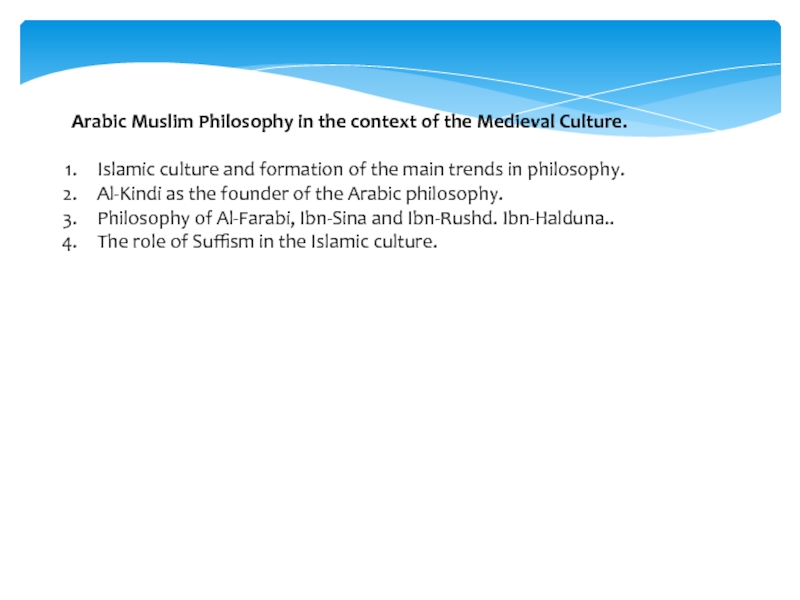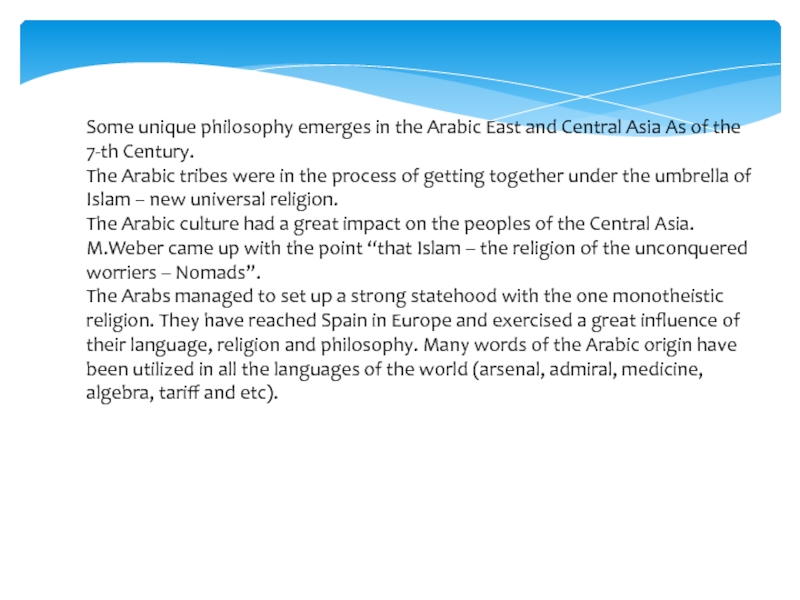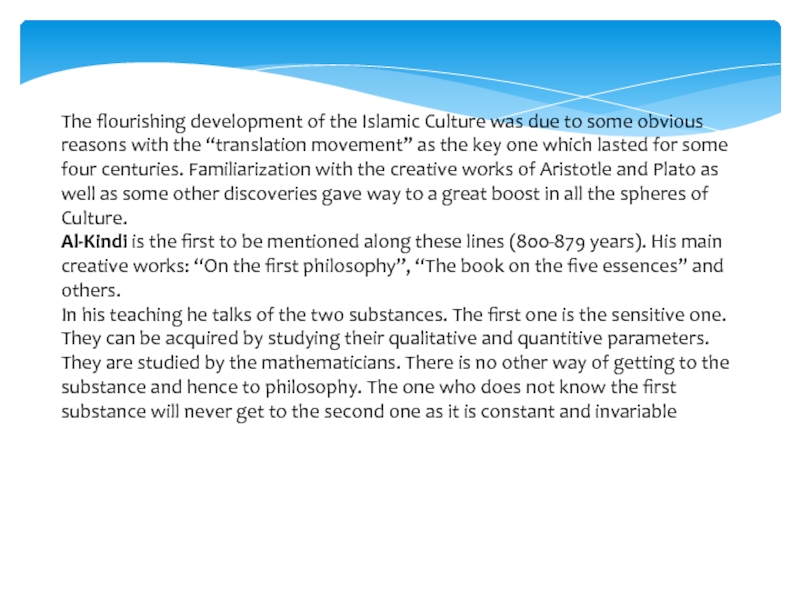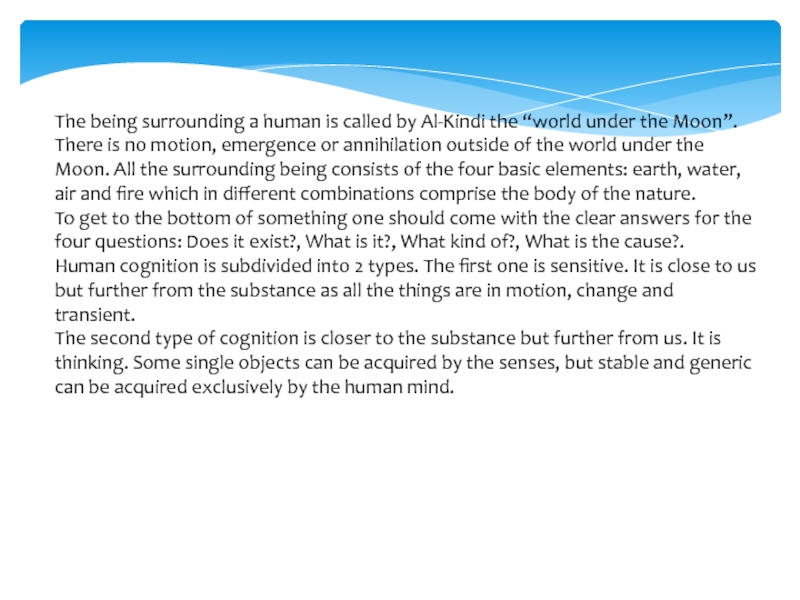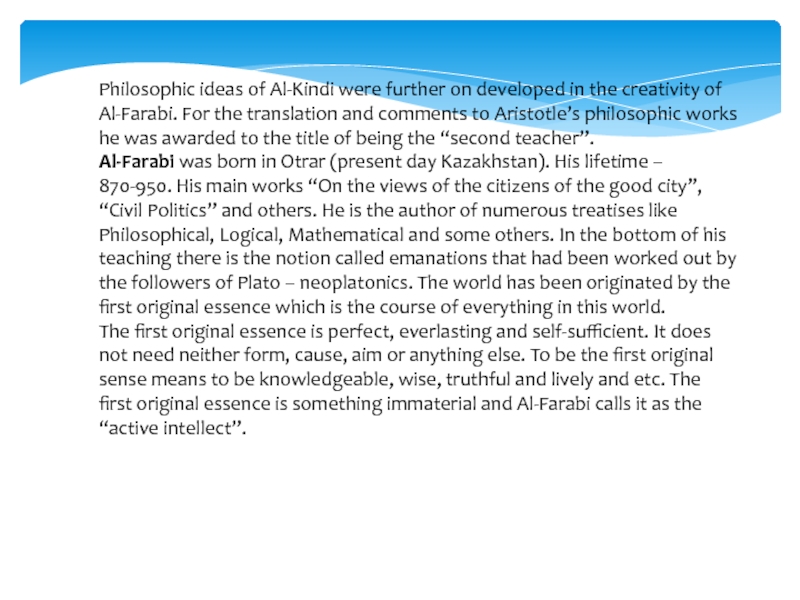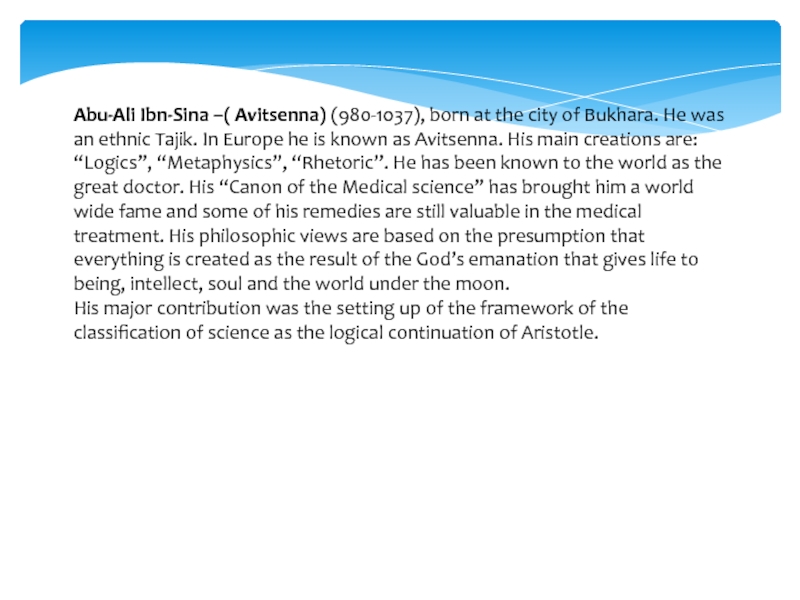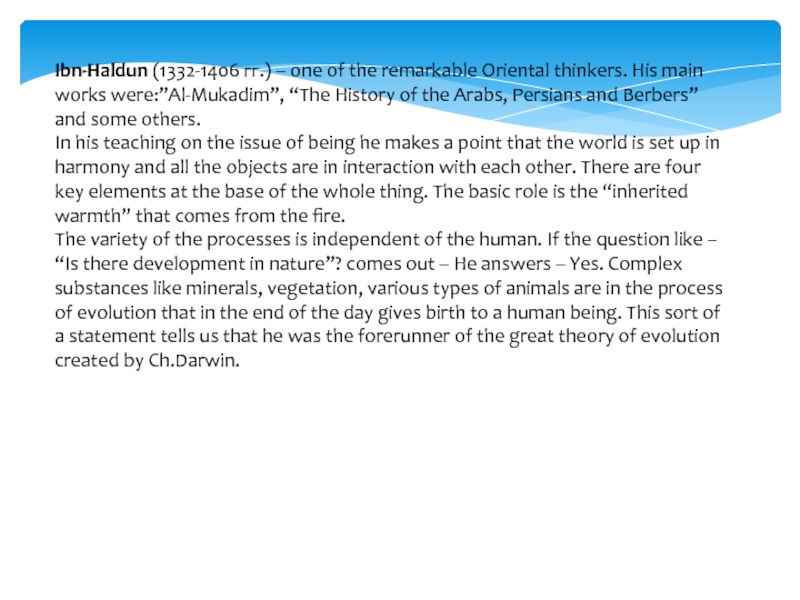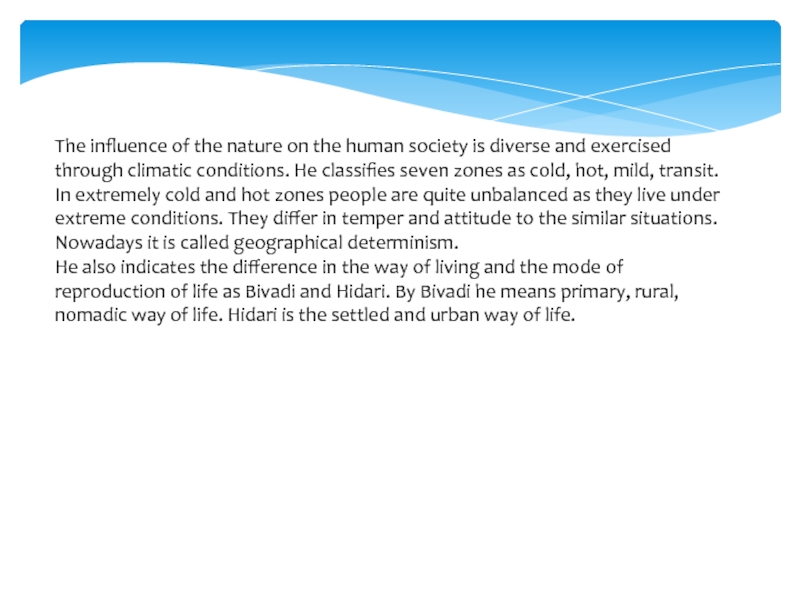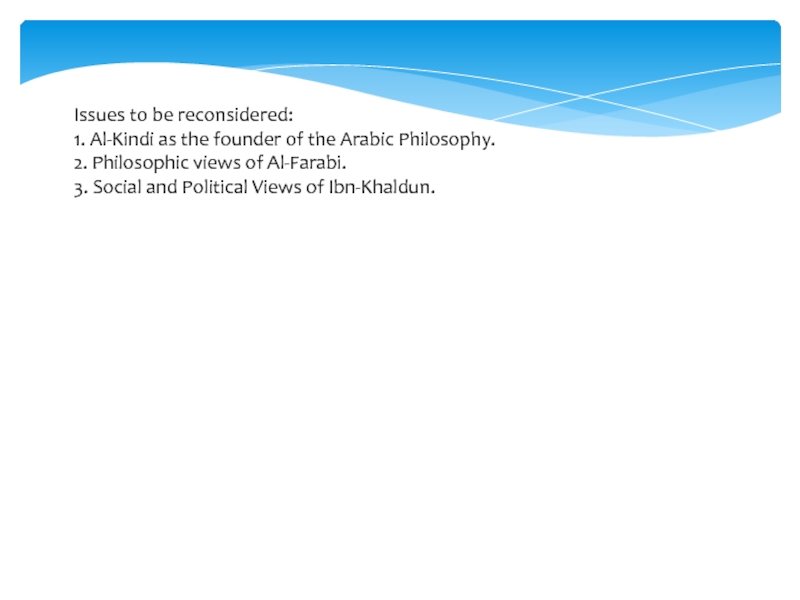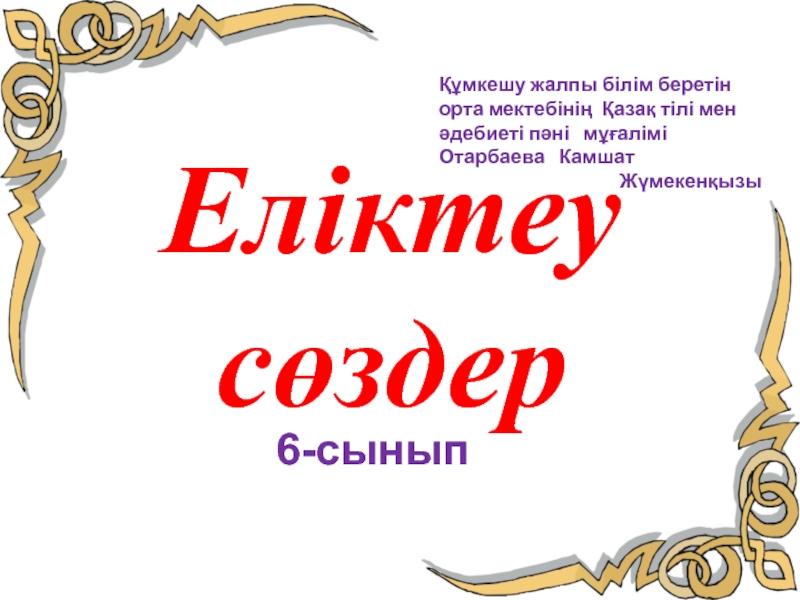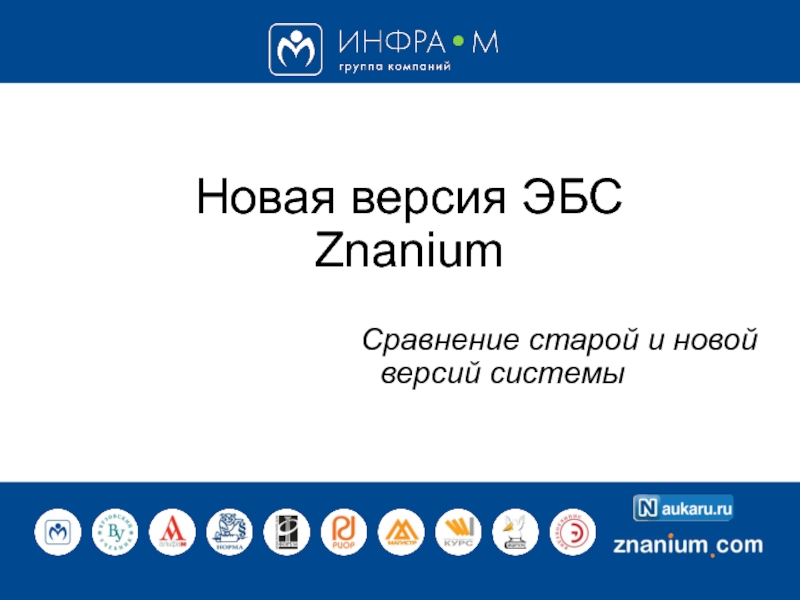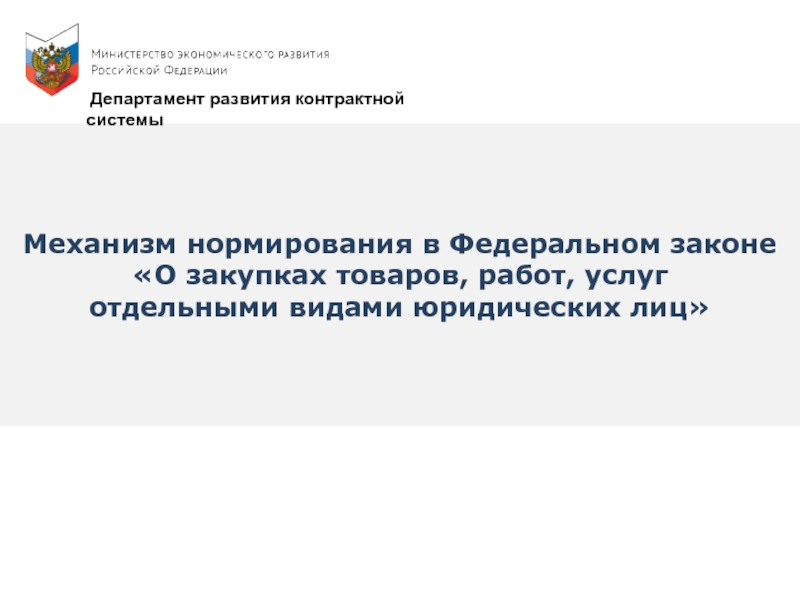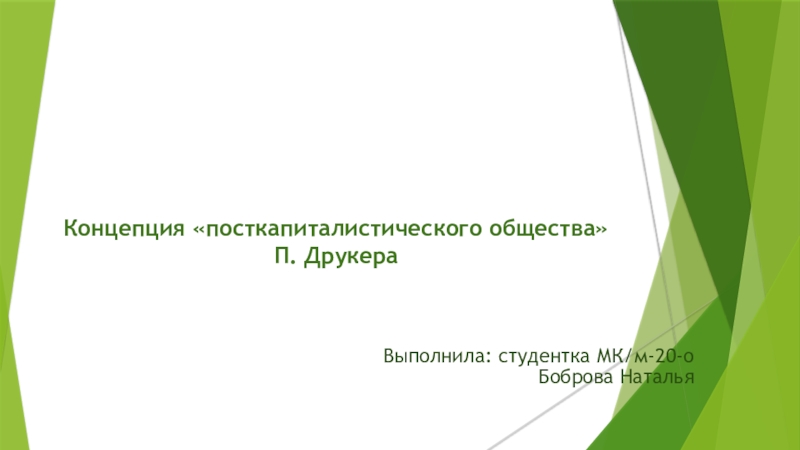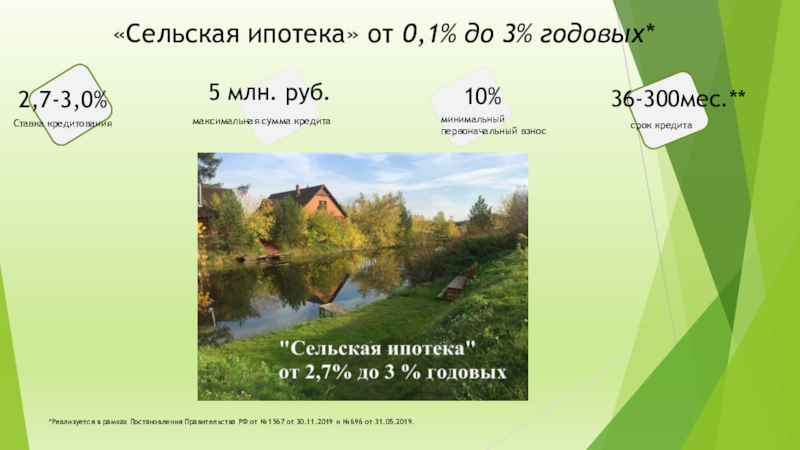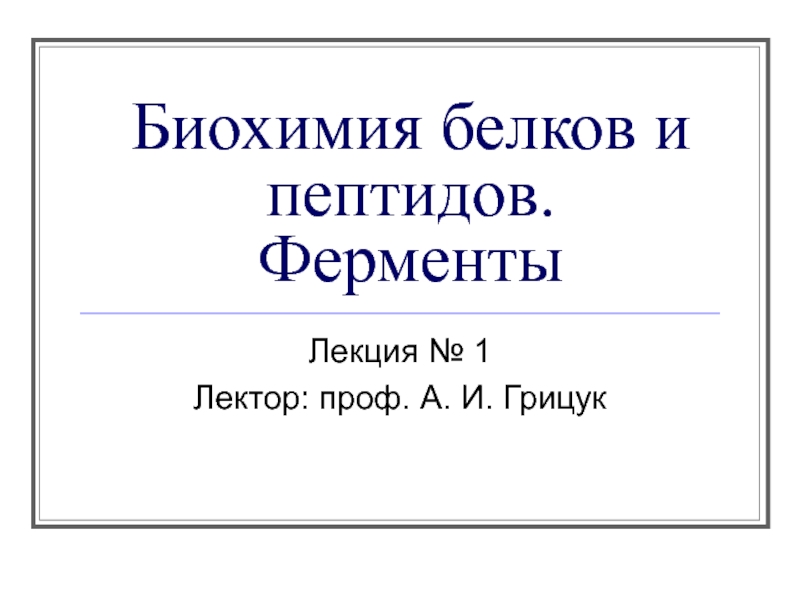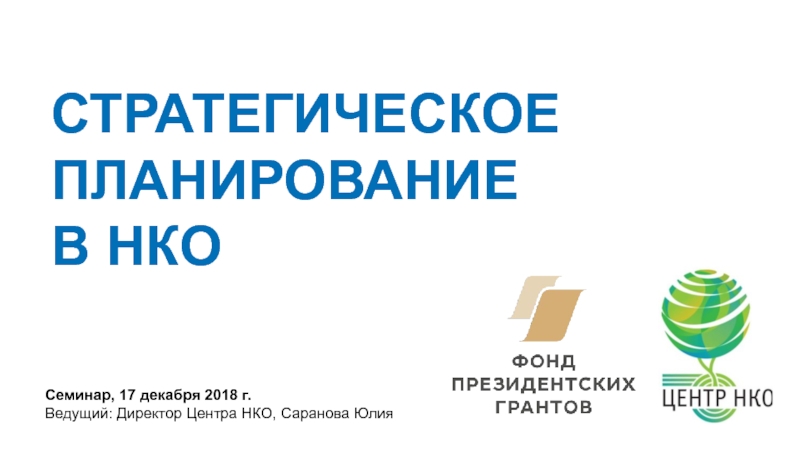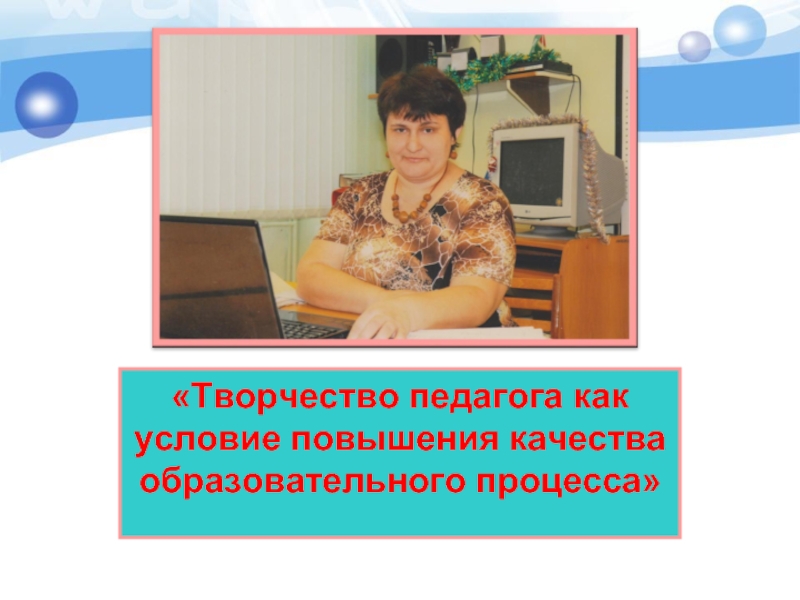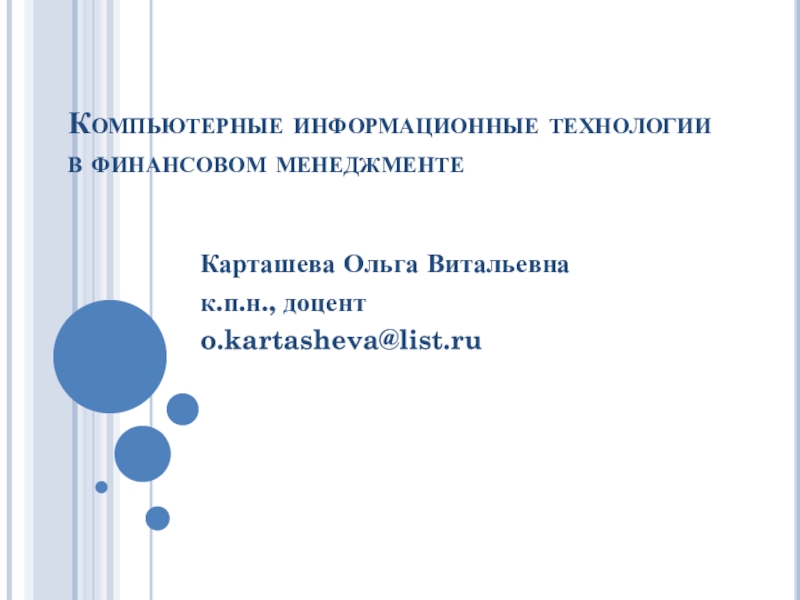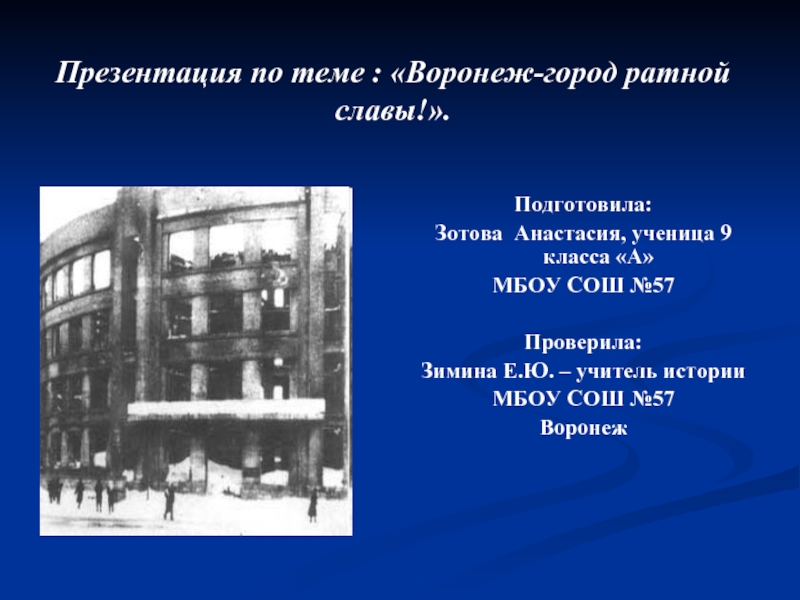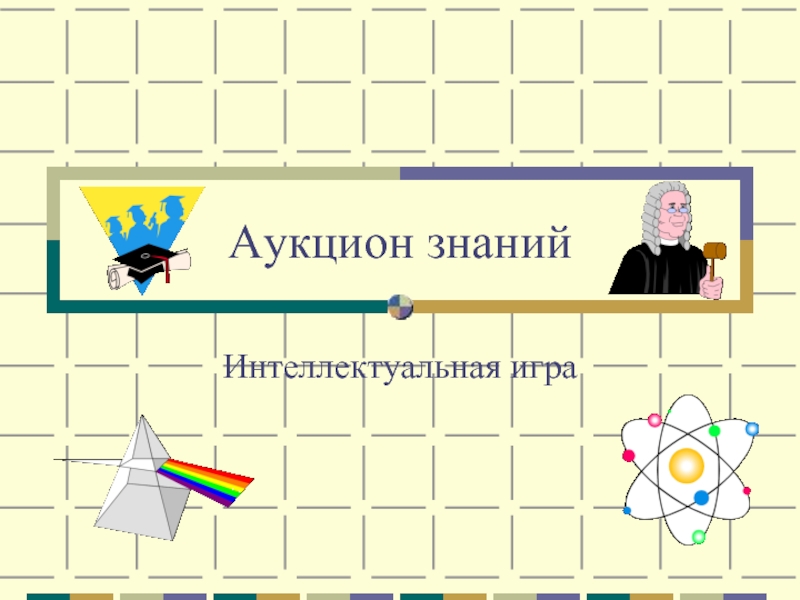Слайд 1 Arabic Muslim Philosophy in the context of the Medieval
Culture.
Islamic culture and formation of the main trends in philosophy.
Al-Kindi
as the founder of the Arabic philosophy.
Philosophy of Al-Farabi, Ibn-Sina and Ibn-Rushd. Ibn-Halduna..
The role of Suffism in the Islamic culture.
Слайд 2Some unique philosophy emerges in the Arabic East and Central
Asia As of the 7-th Century.
The Arabic
tribes were in the process of getting together under the umbrella of Islam – new universal religion.
The Arabic culture had a great impact on the peoples of the Central Asia. M.Weber came up with the point “that Islam – the religion of the unconquered worriers – Nomads”.
The Arabs managed to set up a strong statehood with the one monotheistic religion. They have reached Spain in Europe and exercised a great influence of their language, religion and philosophy. Many words of the Arabic origin have been utilized in all the languages of the world (arsenal, admiral, medicine, algebra, tariff and etc).
Слайд 3The flourishing development of the Islamic Culture was due to
some obvious reasons with the “translation movement” as the key
one which lasted for some four centuries. Familiarization with the creative works of Aristotle and Plato as well as some other discoveries gave way to a great boost in all the spheres of Culture.
Al-Kindi is the first to be mentioned along these lines (800-879 years). His main creative works: “On the first philosophy”, “The book on the five essences” and others.
In his teaching he talks of the two substances. The first one is the sensitive one. They can be acquired by studying their qualitative and quantitive parameters. They are studied by the mathematicians. There is no other way of getting to the substance and hence to philosophy. The one who does not know the first substance will never get to the second one as it is constant and invariable
Слайд 4The being surrounding a human is called by Al-Kindi the
“world under the Moon”. There is no motion, emergence or
annihilation outside of the world under the Moon. All the surrounding being consists of the four basic elements: earth, water, air and fire which in different combinations comprise the body of the nature.
To get to the bottom of something one should come with the clear answers for the four questions: Does it exist?, What is it?, What kind of?, What is the cause?.
Human cognition is subdivided into 2 types. The first one is sensitive. It is close to us but further from the substance as all the things are in motion, change and transient.
The second type of cognition is closer to the substance but further from us. It is thinking. Some single objects can be acquired by the senses, but stable and generic can be acquired exclusively by the human mind.
Слайд 5Philosophic ideas of Al-Kindi were further on developed in the
creativity of Al-Farabi. For the translation and comments to Aristotle’s
philosophic works he was awarded to the title of being the “second teacher”.
Al-Farabi was born in Otrar (present day Kazakhstan). His lifetime – 870-950. His main works “On the views of the citizens of the good city”, “Civil Politics” and others. He is the author of numerous treatises like Philosophical, Logical, Mathematical and some others. In the bottom of his teaching there is the notion called emanations that had been worked out by the followers of Plato – neoplatonics. The world has been originated by the first original essence which is the course of everything in this world.
The first original essence is perfect, everlasting and self-sufficient. It does not need neither form, cause, aim or anything else. To be the first original sense means to be knowledgeable, wise, truthful and lively and etc. The first original essence is something immaterial and Al-Farabi calls it as the “active intellect”.
Слайд 6The first original essence has the ability to produce different
worlds. It does not disappear after creating life in this
world. As for the life in this world it is separated into the three areas: vegetation, animals and intellectual animals.
The first original essence produces 4 degrees of the intellect which are:
Potential intellect is seen as the ability of a human soul to acquire the nature of the objects and their forms.
Actual intellect is the one activated through the abstract thinking when the pieces of objects acquire its independent being as the object of the intellectual activity.
Acquired intellect is the sum of the generated knowledge in the process of cognition of the surrounding world.
Слайд 7Active intellect is the connecting link between the potential and
actual. Thanks to the active intellect the potential gets converted
into the actual one. The example of this transition is the human eyesight which is actual in broad daylight and potential in the darkness.
The society functions as the balanced entity with the structure of command and subordination. The role of the first original essence belongs to the Caliph. Al-Farabi comes up with the 6 obligatory qualities of the leader: wisdom, knowledge, being witty, forward looking, ability to inspire by the word of mouth and be in good health.
Слайд 8Abu-Ali Ibn-Sina –( Avitsenna) (980-1037), born at the city of
Bukhara. He was an ethnic Tajik. In Europe he is
known as Avitsenna. His main creations are: “Logics”, “Metaphysics”, “Rhetoric”. He has been known to the world as the great doctor. His “Canon of the Medical science” has brought him a world wide fame and some of his remedies are still valuable in the medical treatment. His philosophic views are based on the presumption that everything is created as the result of the God’s emanation that gives life to being, intellect, soul and the world under the moon.
His major contribution was the setting up of the framework of the classification of science as the logical continuation of Aristotle.
Слайд 9The great Arabic philosopher Ibn-Rushd (1126-1198гг.) was born in Kordova
(Spain). Ethnic Arab with the European script and sound of
his name as Avverois. Later on Dante would say in his regard – “The teacher of those who do know”. His main works were: “On the first engine”, “On Heavenly bodies” and others.
In his teaching on being he talks on eternity and infinity. If the God is eternal then so is the world created by him. The God as the primary cause shapes up the matter with the relevant form and turns it into the reality.
In his teaching he develops the Aristotle’s statement that – “There is no matter without form and the other way around.
Слайд 10In his teaching “On the Theory of Cognition (Knowledge) he
is very strong on his assessment that there is only
one truth and it should be reasonable. The truth (dogmas) of Koran is addressed to the average people to be clear and understandable. As for philosophy it is the area of study for some intelligent people. If there is the difference between Philosophy and Koran it should cause some reconsideration of the Koran dogmas and adjust them to the newly born knowledge.
As the commentator of the Aristotle’s teaching he was the supporter of the only intellect and cosmic determinism. He was strong in his opinion that the active intellect is the reality existing irrespectively of any individual’s will as some fundamental substance which is in permanent existence as the combined and integral spirit of a human kind. Any intellectual activity is nothing but approximation to the universal reason.
Слайд 11Ibn-Haldun (1332-1406 гг.) – one of the remarkable Oriental thinkers.
His main works were:”Al-Mukadim”, “The History of the Arabs, Persians
and Berbers” and some others.
In his teaching on the issue of being he makes a point that the world is set up in harmony and all the objects are in interaction with each other. There are four key elements at the base of the whole thing. The basic role is the “inherited warmth” that comes from the fire.
The variety of the processes is independent of the human. If the question like – “Is there development in nature”? comes out – He answers – Yes. Complex substances like minerals, vegetation, various types of animals are in the process of evolution that in the end of the day gives birth to a human being. This sort of a statement tells us that he was the forerunner of the great theory of evolution created by Ch.Darwin.
Слайд 12The influence of the nature on the human society is
diverse and exercised through climatic conditions. He classifies seven zones
as cold, hot, mild, transit. In extremely cold and hot zones people are quite unbalanced as they live under extreme conditions. They differ in temper and attitude to the similar situations. Nowadays it is called geographical determinism.
He also indicates the difference in the way of living and the mode of reproduction of life as Bivadi and Hidari. By Bivadi he means primary, rural, nomadic way of life. Hidari is the settled and urban way of life.
Слайд 13Issues to be reconsidered:
1. Al-Kindi as the founder of the
Arabic Philosophy.
2. Philosophic views of Al-Farabi.
3. Social and Political Views
of Ibn-Khaldun.
